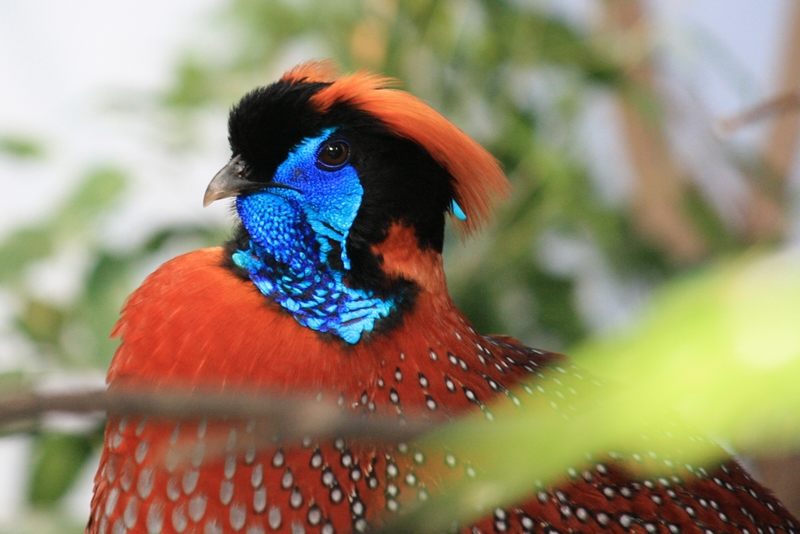|
| Query: Common blue | Result: 331st of 981 | |
Temminck's tragopan (Tragopan temminckii)
| Subject: | Temminck's tragopan (Tragopan temminckii)
| | Poster: | Wiki Photos (---@---.---)
| |

| Resolution: 2400x1603
File Size: 2114097 Bytes
Date: 2010:03:26 15:44:51
Camera: Canon EOS 1000D (Canon)
F number: f/5.6
Exposure: 1/50 sec
Focal Length: 250/1
Upload Date: 2017:01:20 15:14:19
|
Description
Čeština: Satyr Temminckův v pražské Zoo
Date 26 March 2010
Source Own work
Author Matěj Baťha https://commons.wikimedia.org/wiki/User:Jedudedek
Source: https://commons.wikimedia.org/wiki/File:Tragopan_satyra,_ZOO_Praha_158.jpg
The Temminck's tragopan (Tragopan temminckii) is a medium-sized, approximately 64 cm long, pheasant in the genus Tragopan. The male is a stocky red-and-orange bird with white-spotted plumage, black bill and pink legs. It has a bare blue facial skin, inflatable dark-blue lappet and horns. The female is a white-spotted brown bird with blue circular eye skin. Its appearance resembles the satyr tragopan, but unlike the latter species it has all red upperbody plumage and orange collar. The diet consists mainly of berries, grass and plants. The Temminck's tragopan is distributed in forests of northern South Asia, from northeast India, northwest Vietnam, and northern provinces of China. This bird's common name and Latin binomial commemorate the Dutch naturalist Coenraad Jacob Temminck. Order: Galliformes, Family: Phasianidae, Subfamily: Phasianinae. |
^o^
Animal Pictures Archive for smart phones
^o^
|
|

